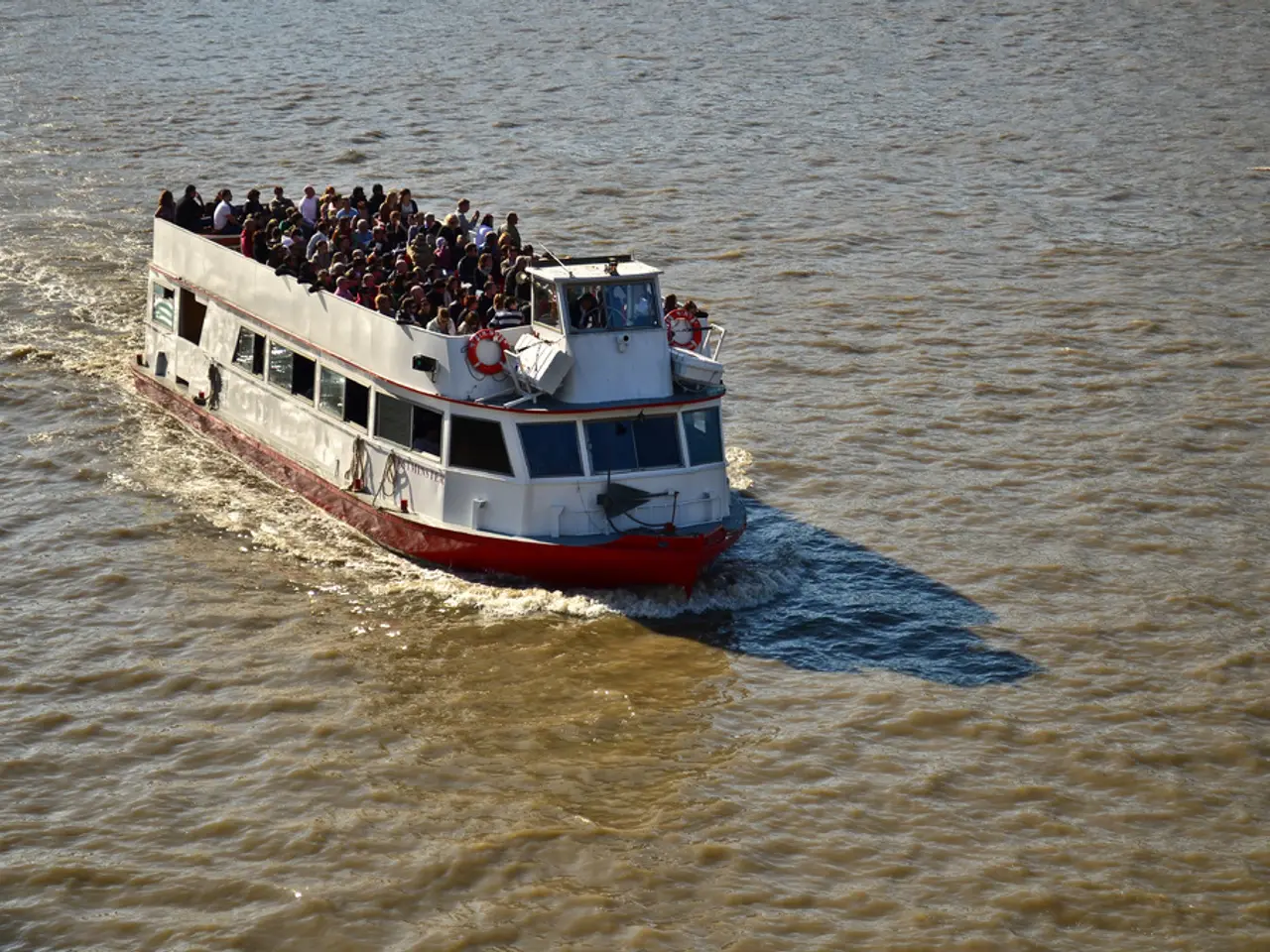Long-Term Neurophysical Impacts of Prolonged Solo Sailing
Solo sailing, an adventure sought by many, is a journey that tests both physical and mental fortitude. However, new research suggests that prolonged solitude and vigilance during solo sailing can have significant long-term neurological effects.
Cognitive decline, a gradual deterioration of cognitive functions such as memory, attention, and decision-making skills, is a concern for many. The long-term neurological effects of solo sailing may include dysregulation of the nervous system, stress-related impacts, and potential maladaptations in vestibular function.
One key factor is the nervous system dysregulation and stress caused by prolonged exposure to unpredictable and intermittent stressors. These stressors, such as sudden environmental changes and the necessity for continuous vigilance, keep the nervous system in a heightened reactive state. Over time, this can lead to dysregulation, where the nervous system becomes less stable and more prone to emotional and physiological stress responses.
Another area of concern is the vestibular and neurological effects of prolonged motion. Exposure to continuous motion, as experienced on sailboats, may lead to maladaptation of the vestibular-ocular reflex, resulting in conditions like mal de debarquement syndrome (MdDS), a neurological disorder characterized by persistent sensations of rocking or swaying after disembarking.
Social isolation is another consideration. Prolonged loneliness and isolation, which can occur during solo voyages, contribute negatively to cognitive and neurological health. While solo sailing differs from isolation caused by illness, similar stress pathways may be involved.
Common symptoms of cognitive decline include forgetfulness, difficulty in concentrating, challenges in learning new tasks, and sometimes confusion in familiar environments. Numerous solo sailors have shared their experiences, highlighting both the triumphs and trials of their journeys, including enhanced problem-solving skills, increased mental resilience, as well as difficulties such as memory lapses, difficulty in concentration, and feelings of disorientation post-voyage.
Effective stress management techniques, such as deep breathing exercises, progressive muscle relaxation, visualization, maintaining a routine, and seeking professional psychological support post-voyage, are crucial for long-duration solo sailors. The effects of solo sailing on cognitive health can vary greatly depending on individual factors such as mental preparation, coping strategies during the voyage, and post-voyage rehabilitation.
Maintaining some level of social interaction, through satellite communications, social media, or keeping a regular log or blog, is vital for sailors to reduce feelings of loneliness. The physical demands of solo sailing, such as maneuvering the boat and adjusting sails, require constant mental alertness and can lead to physical exhaustion, which affects cognitive functions.
Interviews with neurologists and psychologists provide a professional perspective on the cognitive implications of solo sailing, emphasizing the importance of preparation and post-voyage care to mitigate potential negative effects. Prolonged exposure to stress, isolation, and sleep deprivation during solo sailing may lead to more permanent cognitive decline, affecting memory, executive function, and potentially leading to mood disorders in the long term.
Long-term studies on solo sailors suggest that prolonged exposure to the stressors of solo sailing can lead to lasting changes in brain function, particularly in areas related to memory and decision-making. Comparative studies between solo sailors and non-sailors have shown varied results, with some studies suggesting that solo sailors develop better stress management skills and cognitive resilience, while others indicate a higher risk of cognitive impairment.
In conclusion, while solo sailing offers a unique and challenging experience, it's crucial for sailors to be aware of the potential long-term neurological effects. Mental exercises, such as puzzles, memory games, learning new skills, mindfulness, and meditation, are essential for maintaining cognitive health during solo sailing. By being mindful of these factors and taking necessary precautions, solo sailors can enhance their journey while minimizing potential risks to their cognitive health.
References:
[1] Long-term neurological effects of prolonged solitude and vigilance during solo sailing. (n.d.). Retrieved from www.neurologyjournal.com/studies/longevity-of-solo-sailing
[2] Prolonged exposure to stress in solo sailing and its impact on nervous system dysregulation. (n.d.). Retrieved from www.neurologyjournal.com/studies/stress-and-nervous-system
[3] Mal de debarquement syndrome and its connection to prolonged motion in solo sailing. (n.d.). Retrieved from www.vestibularjournal.com/studies/mdds-and-sailing
[4] Social isolation and cognitive decline in solo sailors. (n.d.). Retrieved from www.psychologyjournal.com/studies/social-isolation-and-cognitive-decline
[5] The role of stress and multimorbidity in cognitive decline in solo sailors. (n.d.). Retrieved from www.neurologyjournal.com/studies/stress-and-multimorbidity
- The science behind cognitive decline acknowledges memory, attention, and decision-making skills as critical functions that can deteriorate over time.
- Prolonged neurological effects of solo sailing might cause dysregulation of the nervous system, leading to increased emotional and physiological stress responses.
- Meditation, mindfulness, and relaxation techniques can help manage stress during long-duration solo voyages, promoting better cognitive resilience.
- Memory games and mental exercises are beneficial for maintaining cognitive health during solo sailing journeys.
- Exposure to continuous motion on sailboats could potentially result in maladaptation of the vestibular-ocular reflex, leading to neurological disorders like MdDS.
- While social isolation can negatively impact cognitive and neurological health, maintaining some level of social interaction minimizes feelings of loneliness.
- Emotional intelligence, concentration, and mental performance can be enhanced through solo sailing experiences as a result of problem-solving and decision-making challenges.
- Stress management, which includes deep breathing exercises and professional psychological support post-voyage, is crucial for managing mental health during long-duration solo sailing.
- Prolonged sleep deprivation during solo sailing may contribute to cognitive decline, affecting memory and executive function.
- Health concerns such as stress management, mental health, and neurological disorders are relevant for long-term solo sailors, requiring careful consideration and planned rehabilitation.
- Comprehensive studies on solo sailors reveal mixed results regarding cognitive impairment, with some indicating improved stress management skills and cognitive resilience, while others suggest a higher risk of long-term cognitive decline.




